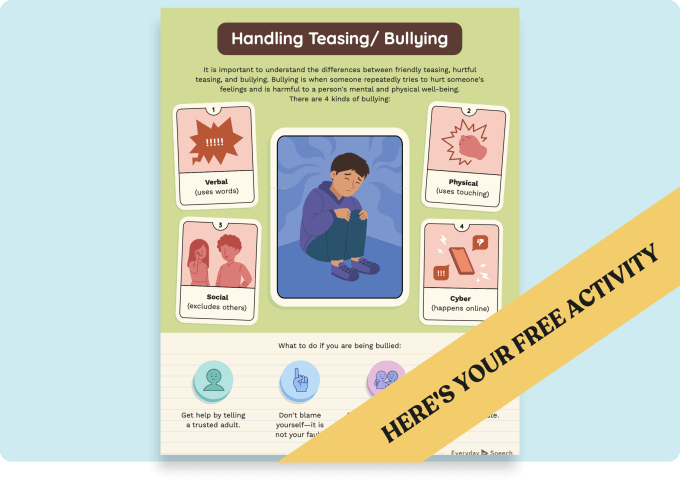Enhancing Communication Skills in Special Education Through Social-Emotional Learning
Get free social skills materials
No-prep lessons on self-regulation, emotional recognition, conversation skills, and more.
Sign up hereAs an educator, it is essential to support students in special education in developing their communication skills. Social-Emotional Learning (SEL) principles provide a valuable framework for fostering these skills. In this blog post, we will explore a no-prep activity designed to enhance communication, discuss related questions, and offer additional resources to support students’ growth in this area.
Introduction
Effective communication is crucial for students in special education, as it allows them to express their needs, thoughts, and feelings. By incorporating SEL principles, educators can create an inclusive environment that promotes open dialogue and understanding. When students feel empowered to ask for help, they can better navigate challenges and develop strong relationships with their peers and teachers.
No-Prep Activity: Asking for Help Role-Play
This activity requires no preparation or materials, making it an accessible exercise for any classroom. The goal is to help students practice asking for help in a supportive and non-threatening environment.
- Divide the class into pairs. One student will play the role of the teacher, while the other will be the student.
- Explain that the student will pretend to have difficulty with a specific task or question, while the teacher will offer assistance.
- Encourage the student to use clear language and provide details about the issue they are experiencing.
- Allow the pairs to practice the role-play scenario for a few minutes, then switch roles and repeat the process.
- After both students have had a chance to practice each role, bring the class together for a group discussion about the activity.
This role-play activity allows students to practice asking for help in a controlled setting, helping them build the confidence to do so in real-life situations.
Discussion Questions
After completing the activity, use these questions to facilitate a class discussion:
- How did it feel to ask for help during the role-play? Were you comfortable or nervous? Why?
- What strategies did you use to make your request for help clear and specific?
- How can practicing asking for help in a role-play scenario benefit you in real-life situations?
- What are some other situations where you might need to ask for help, and how can you apply the skills you practiced today?
- How can teachers and peers support each other in creating an environment where everyone feels comfortable asking for help?
Related Skills
Beyond communication, there are several other important skills that special education students can develop through SEL principles:
- Empathy: Understanding and sharing the feelings of others.
- Active listening: Paying close attention to, and engaging with, the speaker.
- Conflict resolution: Addressing and resolving disagreements in a constructive manner.
- Self-awareness: Recognizing one’s own emotions, strengths, and areas for growth.
Next Steps
To further support your students in developing their communication skills and other social-emotional competencies, sign up for free sample materials from Everyday Speech. These resources can help you create an inclusive and supportive learning environment that encourages students to ask for help and express themselves with confidence.


